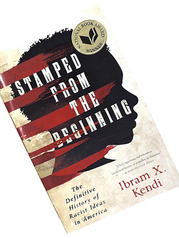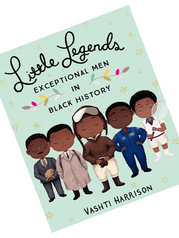
for parents, children, educators and playworkers
As playworkers and play advocates working with children and their adults it is paramount that we make sure children are involved and supported in conversations and considerations around racism and the fight for race equality.
The issue of racial injustice is a fraught and heavy one, and is often dubbed as age inappropriate for children. This means that BAME parents bear the brunt of educating their own children by necessity of experience. This makes racism a 'Black issue', rather than something everyone needs to work to educate on and eradicate. If we can find ways to include children in the anti-racism self-reflection and education work happening at the moment, in sensitive ways, then we will raise more critical and considerate allies who will better understand the world around them.
The Children's Community School have an excellent landing page on social justice resources, which importantly includes an infographic of research showing "They're not too young to talk about race."
The following resources are largely aimed at White parents, caregivers and those who work with children, encouraging them to shoulder their fair share of anti-racism educating and awareness.
A Parent's Guide to Black Lives Matter
by Lily Pryer and Francesca Chong
This is a very comprehensive guide. It includes age appropriate explanations of white privilege, George Floyd and racism. This pdf also includes a brilliant list of age appropriate books, online resource, podcasts and films. The section "It's not just a narrative of struggle" teaches ways to allow children to positively experience diversity and engage with different cultures and races in nuanced and appreciative, rather than appropriative ways.
The Conscious Kid on Instagram has learning materials for adults and children alike, with a focus on child friendly reading materials.
We would also add That is My Dream! by Langston Hughes and Daniel Miyares, Little Leaders: Bold Women in Black History by Vashti Harrison, Antiracist Baby by Ibram X. Kendi and Grandad Mandela by Ambassador Zindzi Mandela. For older children and young adults, it is worth checking out Ghost Boys by Jewell Parker Rhodes, I am Alfonso Jones by Toni Medina and Noughts and Crosses by Malorie Blackman. Charis Books has a thorough reading list on "books that teach white children and teens how to undo racism and white supremacy."
Podcasts that help you talk to your children about race, compiled by Bello Collective.
This resource included podcasts caregivers can listen to, and also child-friendly ones. We like the look of Activist, You! for ages 5 and up which features interviews with youth activists, instilling the idea that kids are active citizens!
The new podcast from the makers of Serial takes a look at how racism, unconscious bias and privilege operate in the school system. Look for 'Nice White Parents' on your listening platforms.
Teaching Tolerance
Teaching Tolerance is a organisation that works from the belief that educators have a civic responsibility to learn and teach the continuing history and affects of racism, and work towards racial equality. Teaching Tolerance provides free to use lesson plans, classroom resources and building blocks for customised learning plans for educators.
-
Includes a Social Justice Standard, which provides a common language and a road map for anti-bias education at every age or grade level.
-
Covers Identity, Diversity, Justice and Action frameworks for teaching anti-bias from an early age
-
Includes a webinar - Let's Talk! Teaching Black Lives Matter.
More resources for teachers:
-
Becoming Upended: Teaching and Learning about Race and Racism with Young Children and Their Families
-
Critical Community Conversations. Cultivating the Elusive Dialogue about Racism with Parents, Community Members and Teachers

Play provision and play workers
Equal access to play is a key concern to those of us working in the play sector. While there are extensive studying around access to play concerning economic factors and also disability, there are fewer easy-to-access studies on specifically BAME children and their access to play provision. It is important to note that economic, geo-political and racial factors impacting access to play provision are often closely related. It would be good to see even more explicit research dedicated to anti-racist play policy.
Haki Kapasi, director of Inspire, has published multiple papers and books on play opportunities and provision for ethnic minority children, with a particular focus on Asian children. Inspire have worked on reports with Play England, such as "Because it's freedom: Children's views on their time to play." Kapasi's "Being and anti-racist" is an important contribution to Foundations of Playwork that reveals the state of play in playwork and education environments.
For those interested in play theory, Veronica Pacini-Ketchabaw offers an important counter to developmental perspectives from a specifically postcolonial and anti-racist perspective. She argues that it is important to examine the "intersection of play and racisms" and interrogate how a lot of play theory is focused on Western contexts and a colour blind, "universal child," which often omits the experiences of racialised and ethnic minority children in play environments. Her article can be found in The SAGE Handbook of Play and Learning in Early Childhood.
This brilliant New Yorker article revisits James Baldwin's A Talk to Teachers. The author reflects on the inspiration he found in Baldwin's famous address, and how it made a strong case for educators to empower their charges with the knowledge and tools to really examine the society in which they are educated. This is directly applicable to the work playworkers do, and those interested in adventure play. Doing anti-racist work in our play environments will only bolster and encourage children as agents, civic participators and culture makers. By leading with anti-racist frameworks and giving our children the tools to understand that the world is "moulded by people who came before," we let them to know "it can be remoulded into something new." Children and young adults can become questioners and challengers of dominant discourse and create their own, fairer counter-cultures.
Advocate
As playworkers we need to continue to advocate to better access to better play for all children. We have an opportunity to look at the obstacles that impact children's access to play, which meaningfully impacts their lives. Integrating this into anti-racism work is essential for effectively creating equity in play environments. This means advocating for urban planning that does not segregate, that ensures more BAME populations in urban settings have easy access to green spaces, that the Playing Out movement spreads to all communities. It means campaigning for more funding for play projects and social investment. It means support for refugees and their children.
Adventure playgrounds (APGs) have tended to be situated in inner city communities, often with a diverse mix of families who attend. This geography has given APGs a rich cultural history of social justice and play advocacy while they actively serve the families from diverse backgrounds and heritages. Significantly, APGs position as inner city hubs has produced many talented BAME playworkers and BAME trustees of APGs who are community leaders. While this is no means indicative of the play sector at large, it is promising to have BAME figureheads sit of the boards of many of these cherished centres of adventure play. It is one of the many reasons why we need to protect adventure playgrounds and build new ones for future generations. The APG as sites of radical play and as an integrated centres for community (support and expression) make them the perfect arenas to advocate anti-racism.







